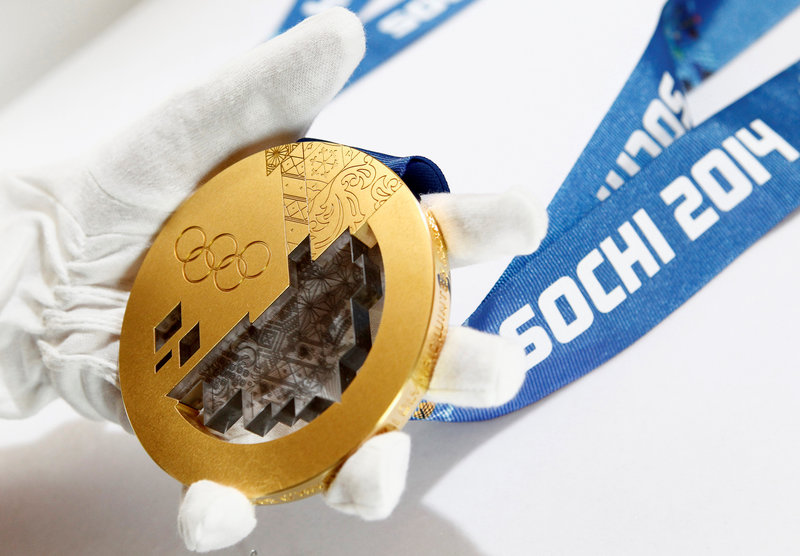Doping Program Fueled Russian Medals At Sochi Olympics: Report


A gold medal manufactured for the 2014 Winter Olympic Games in Sochi, is seen on display at the Adamas jewellery factory in Moscow, June 28, 2013. REUTERS/Sergei Karpukhin/File Photo
Dozens of Russian athletes who competed at the 2014 Sochi Winter Olympics, including at least 15 medal winners, were part of a state-run doping program, the New York Times reported on Thursday.
The report comes months after revelations by an independent World Anti-Doping Agency (WADA) commission last November of widespread state-sponsored doping in Russia, which led to a ban on the country competing in international athletics competitions.
Unless that ban is lifted, Russian athletics competitors will miss the Rio Olympics in Brazil, set to run Aug. 5-21.
According to the New York Times report, which is based largely on evidence from the director of the country’s anti-doping laboratory during the Sochi Olympics, those involved included some of Russia’s biggest stars of the Games, including 14 members of its cross-country ski team and two veteran bobsledders who won two golds.
Russian anti-doping experts and members of the intelligence services secretly broke into tamper-proof bottles to replace urine samples tainted by performance-enhancing drugs with clean urine collected months earlier, the New York Times reported.
By the end of the 2014 Olympics, Grigory Rodchenkov, who ran Russia’s drug testing lab, said as many as 100 dirty urine samples were expunged, the newspaper said.
“We were fully equipped, knowledgeable, experienced and perfectly prepared for Sochi like never before,” Rodchenkov is quoted as saying in the report, which stated he received the prestigious Order of Friendship by Russian President Vladimir Putin after the Sochi Olympics. “It was working like a Swiss watch.”
Rodchenkov resigned from his position last November after the Moscow-based laboratory he oversaw stopped operating when its accreditation was suspended by the World Anti-Doping Agency (WADA).
While the New York Times could not independently verify Rodchenkov’s account of the doping operation, his information is consistent with the findings of a WADA report published late last year.
The report is the latest alleging widespread performance-enhancing drug use by the country’s athletes. In the past week, CBS News aired an interview saying that at least four of Russia’s gold medal winners at the Sochi Olympics were using steroids.
Putin staked his reputation on the Sochi Games, which at around $50 billion was the most expensive in Olympic history. Russia led all countries with 13 gold medals and 33 overall at in Sochi.
On Wednesday, reporting that the New York Times was soon to release its article, Russian news agency TASS cited Russia’s sports minister Vitaly Mutko saying there was an “information attack” on Russian sport.
“The system of organization for the Olympic games was absolutely transparent,” Mutko told TASS. “Everything was under the control of international experts – from taking samples to their analysis.”
According to the New York Times report, Rodchenkov was given a list that named the athletes involved in the doping program and their competition schedule and was to substitute their samples if any went on to win a medal.
Rodchenkov, who was a global expert on performance-enhancing drugs, told the New York Times it was up to him to ensure that Russian athletes won the most medals, preferably gold ones.
According to the report, Rodchenkov said some of his athletes would at times take drugs he had not approved, making them vulnerable to discovery.
“All athletes are like small children,” he said in the New York Times report. “They’ll put anything you give them into their mouths.”
Политика конфиденциальности | Правила пользования сайтом







